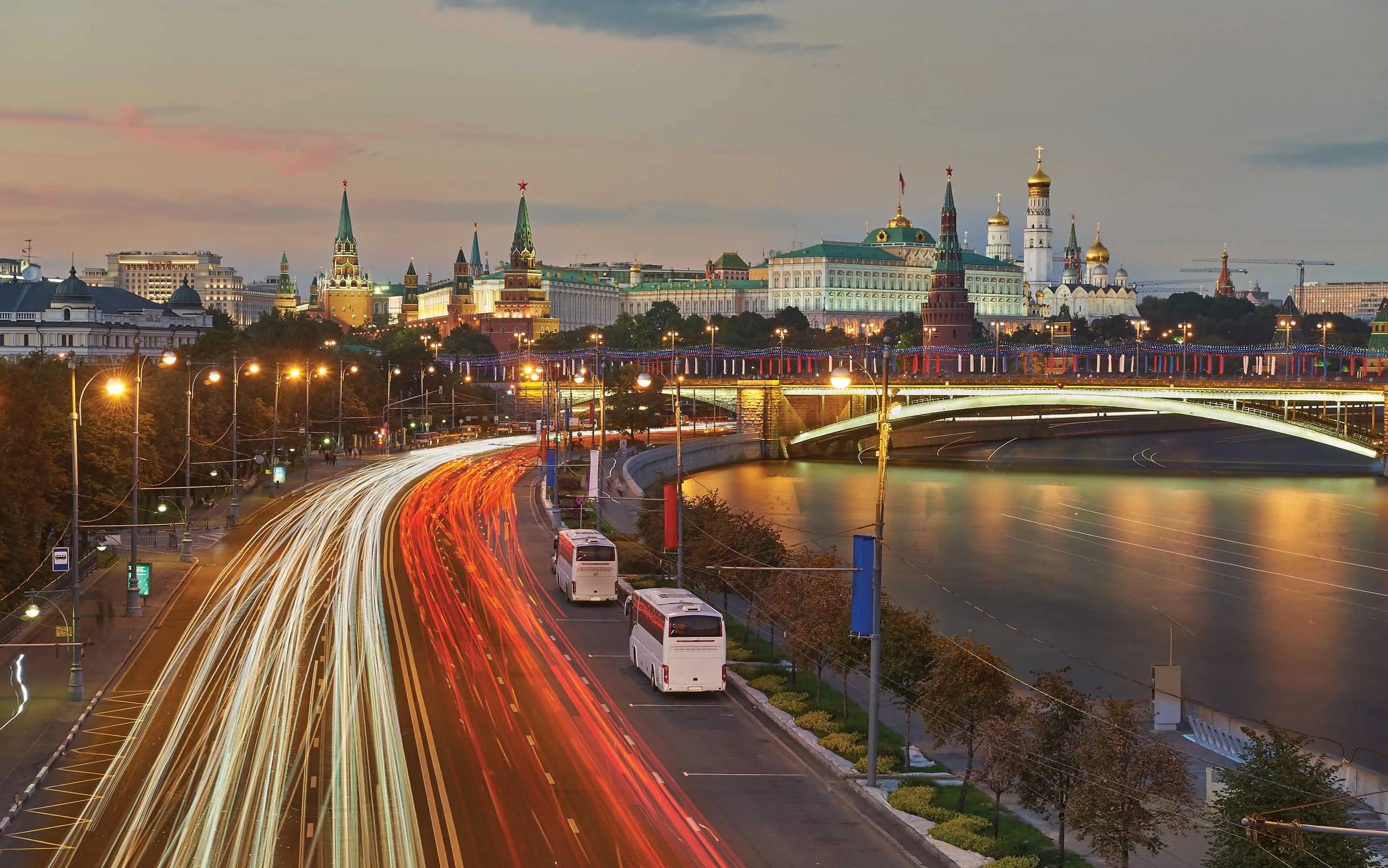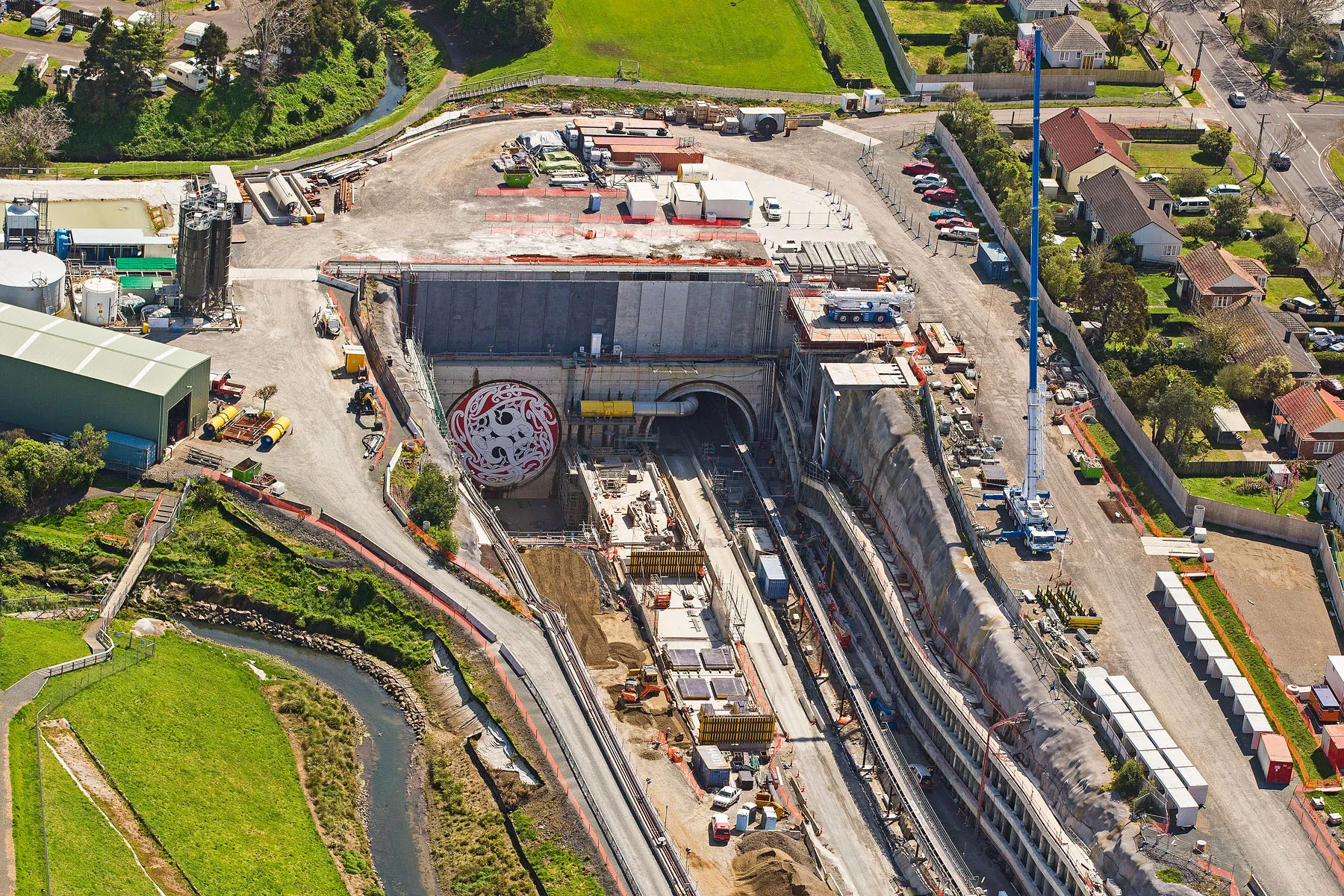The Moscow City Government plans to complete building of the North-East and North-West Chords, two of the biggest road building projects in the city for the last 15 years
The links will be completed during the next several months, according to an official spokesman of the Moscow Government.
Both roads are considered as a cheaper alternative to the Fourth Ring Road, the construction of which was considered by the Moscow Government several years ago. However due to huge costs, which are estimated at mo
January 5, 2016
Read time: 4 mins

RSSThe Moscow City Government plans to complete building of the North-East and North-West Chords, two of the biggest road building projects in the city for the last 15 years
The links will be completed during the next several months, according to an official spokesman of the Moscow Government.
Both roads are considered as a cheaper alternative to the Fourth Ring Road, the construction of which was considered by the Moscow Government several years ago. However due to huge costs, which are estimated at more than US$20 billion (RUB 1 trillion) implementation of the Fourth Ring Road project was suspended in 2010.
The North-East Chord should link the Moscow - St Petersburg highway with the Veshnyaki – Lyubertsy road, (which passes through the Moscow region) and will be the continuation of the Moscow - St Petersburg road.
The Chord will connect major highways in the north-east of Moscow, including the Dmitrov, Altufevskoe, Yaroslavl and Schelkovskoe routes.
Under the terms of the project, the length of the future toll-free road will be about 25km. According to state plans, the new road should reduce the traffic load on the Moscow Ring Road, the Third Ring Road, outbound routes, as well as downtown of Moscow.
Building of the North-East Chord has been carried out since 2008. The volume of investments is estimated at $5.5 billion (RUB 135 billion), of which $2.85 billion (RUB 70 billion) has already been allocated from the federal budget and the budget of the Moscow City Government.
Oleg Skvortsov, President of RHODES, the Association of research organisations in the field of road building, supports the idea of the establishment of such chord road systems in Moscow.
According to Skvortsov, ring roads, which were built in the city under Yury Luzhkov, the previous Moscow mayor, do not solve the problem of traffic jams in the city.
Skvortsov explained, "Chords, unlike ring roads, pass outside the city. In addition, in the case of building of several chords, they may form the ring. Another advantage is that building a straight road is always cheaper, compared to curved roads.”
According to initial plans of the Moscow City Government, building of the chord should be completed in the first half of 2016, however, due to the current crisis in Russia, caused by Western sanctions, implementation of the project may be suspended until 2017, mainly due to a shortage of funds in the Russian federal budget and the budget of Moscow city.
Due to this, the Moscow City Government has already begun a search for private investors, who may participate in the project.
There is a possibility that building of the road may be finished by the Leader Group of Companies, Russia’s largest company in the market of trust management, with a total value of operating assets estimated at $17.76 billion (RUB 436 billion). The project is expected to be implemented on the basis of concession.
At the same time, in addition to North-East Chord, as part of the plans, the Moscow City Government is building the North-West Chord, which will link the north-eastern and south-western parts of the city.
The idea for building the chord was first put forward in 1971, however implementation of the project only began in 2011. Building of the road should be completed by 2017. It will be approximately 29km long and will stretch from Skolkovo to the Yaroslavl highway.
According to initial plans of the Moscow City Government, the volume of investments in the building of the North-West Chord should reach $1.3 billion (RUB 32 billion), however, to date, these figures have already risen to $2.5 billion (RUB 63 billion).
Successful implementation of both projects will allow the Moscow City Government to finally cancel the building of the Fourth Ring Road, the road building project, which, according to preliminary calculations of the Moscow authorities, would become one of the most expensive in the history of Russian and Moscow road building.
According to an official spokesman of Sergey Sobyanin, the mayor of Moscow, the cost of building the road is comparable to the Central Artery/Tunnel Project, a megaproject in Boston that rerouted the Central Artery (Interstate 93)––the chief highway through the heart of the city—into the 5.6km Thomas P O'Neill Jr Tunnel, the volume of investments in which implementation amounted to US$14.6 billion.
Sergey Sobyanin said, "Due to such enormous costs, we are not ready to build the Fourth Ring Road. That makes no sense. We have already built the Third Ring Road, however this has not resulted in a significant improvement of the situation with road traffic in the city. The cost of building the Fourth Ring Road is more than 1 trillion rubles, which means that the city would have to suspend implementation of other road building projects for about ten years.”
RSS
The links will be completed during the next several months, according to an official spokesman of the Moscow Government.
Both roads are considered as a cheaper alternative to the Fourth Ring Road, the construction of which was considered by the Moscow Government several years ago. However due to huge costs, which are estimated at more than US$20 billion (RUB 1 trillion) implementation of the Fourth Ring Road project was suspended in 2010.
The North-East Chord should link the Moscow - St Petersburg highway with the Veshnyaki – Lyubertsy road, (which passes through the Moscow region) and will be the continuation of the Moscow - St Petersburg road.
The Chord will connect major highways in the north-east of Moscow, including the Dmitrov, Altufevskoe, Yaroslavl and Schelkovskoe routes.
Under the terms of the project, the length of the future toll-free road will be about 25km. According to state plans, the new road should reduce the traffic load on the Moscow Ring Road, the Third Ring Road, outbound routes, as well as downtown of Moscow.
Building of the North-East Chord has been carried out since 2008. The volume of investments is estimated at $5.5 billion (RUB 135 billion), of which $2.85 billion (RUB 70 billion) has already been allocated from the federal budget and the budget of the Moscow City Government.
Oleg Skvortsov, President of RHODES, the Association of research organisations in the field of road building, supports the idea of the establishment of such chord road systems in Moscow.
According to Skvortsov, ring roads, which were built in the city under Yury Luzhkov, the previous Moscow mayor, do not solve the problem of traffic jams in the city.
Skvortsov explained, "Chords, unlike ring roads, pass outside the city. In addition, in the case of building of several chords, they may form the ring. Another advantage is that building a straight road is always cheaper, compared to curved roads.”
According to initial plans of the Moscow City Government, building of the chord should be completed in the first half of 2016, however, due to the current crisis in Russia, caused by Western sanctions, implementation of the project may be suspended until 2017, mainly due to a shortage of funds in the Russian federal budget and the budget of Moscow city.
Due to this, the Moscow City Government has already begun a search for private investors, who may participate in the project.
There is a possibility that building of the road may be finished by the Leader Group of Companies, Russia’s largest company in the market of trust management, with a total value of operating assets estimated at $17.76 billion (RUB 436 billion). The project is expected to be implemented on the basis of concession.
At the same time, in addition to North-East Chord, as part of the plans, the Moscow City Government is building the North-West Chord, which will link the north-eastern and south-western parts of the city.
The idea for building the chord was first put forward in 1971, however implementation of the project only began in 2011. Building of the road should be completed by 2017. It will be approximately 29km long and will stretch from Skolkovo to the Yaroslavl highway.
According to initial plans of the Moscow City Government, the volume of investments in the building of the North-West Chord should reach $1.3 billion (RUB 32 billion), however, to date, these figures have already risen to $2.5 billion (RUB 63 billion).
Successful implementation of both projects will allow the Moscow City Government to finally cancel the building of the Fourth Ring Road, the road building project, which, according to preliminary calculations of the Moscow authorities, would become one of the most expensive in the history of Russian and Moscow road building.
According to an official spokesman of Sergey Sobyanin, the mayor of Moscow, the cost of building the road is comparable to the Central Artery/Tunnel Project, a megaproject in Boston that rerouted the Central Artery (Interstate 93)––the chief highway through the heart of the city—into the 5.6km Thomas P O'Neill Jr Tunnel, the volume of investments in which implementation amounted to US$14.6 billion.
Sergey Sobyanin said, "Due to such enormous costs, we are not ready to build the Fourth Ring Road. That makes no sense. We have already built the Third Ring Road, however this has not resulted in a significant improvement of the situation with road traffic in the city. The cost of building the Fourth Ring Road is more than 1 trillion rubles, which means that the city would have to suspend implementation of other road building projects for about ten years.”
RSS






